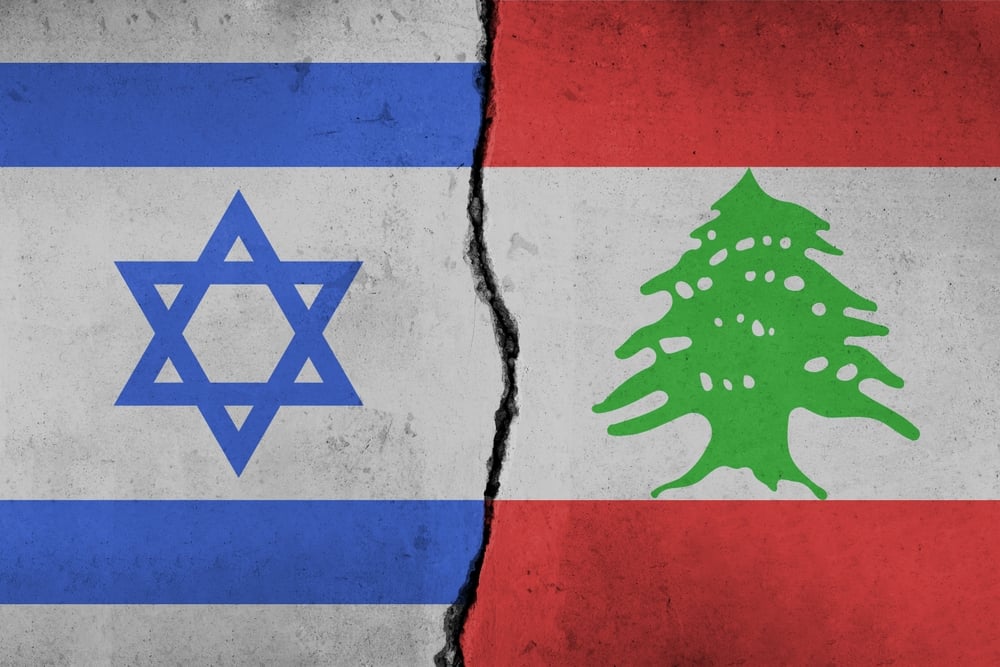Tensions flared in southern Lebanon on Thursday as Israeli troops reportedly opened fire on three positions held by U.N. peacekeepers, including the main base of the United Nations Interim Force in Lebanon (UNIFIL) at Naqoura. The incident occurred amid escalating hostilities in the area, following claims by Hezbollah that it had targeted Israeli forces with guided missiles. The exchange has raised concerns about the safety of U.N. personnel and the potential for further conflict in the region.
Details of the Incident: Israeli Fire Targets UNIFIL Positions
According to a U.N. source, Israeli troops opened fire on three different locations held by UNIFIL in southern Lebanon. One of the targeted positions was the main UNIFIL base at Naqoura, a town near the Israel-Lebanon border. The source could not immediately specify the type of fire used, and there was no official statement from UNIFIL or the Israeli military regarding the incident at the time.
The reported targeting of U.N. peacekeeper positions came just hours after Hezbollah announced that it had launched guided missiles at an Israeli tank advancing near the border area of Ras al-Naqoura. The militant group said it had followed up the initial strike by firing another salvo of missiles at an Israeli force attempting to evacuate injured soldiers from the area. The situation remains fluid, with tensions in the border region escalating rapidly.
UNIFIL’s Concerns About the Safety of Peacekeepers
UNIFIL had previously expressed deep concern over recent activities by the Israeli military near peacekeeper positions in southwestern Lebanon. Although no specific details were provided at the time, UNIFIL stated that such activities were dangerous and jeopardized the safety of U.N. personnel carrying out Security Council-mandated duties.
In a letter dated October 3 and addressed to Israel’s military, UNIFIL objected to the positioning of Israeli military vehicles and troops in close proximity to U.N. locations, stating that the situation endangered both personnel and premises. The latest incident appears to validate UNIFIL’s earlier concerns, as the safety of peacekeepers continues to be compromised by the ongoing hostilities.
Hezbollah’s Involvement and Escalating Hostilities
The recent violence in the region is part of a broader escalation between Hezbollah and Israeli forces. Hezbollah’s actions on Thursday, targeting an Israeli tank and then launching a missile barrage at Israeli troops, come amidst heightened tensions along the Israel-Lebanon border. The area has seen sporadic clashes in recent months, with both sides accusing each other of provocations.
Hezbollah, a powerful Shiite militant group and political party in Lebanon, has a history of confrontation with Israel. The group’s involvement in the current flare-up raises the stakes, as any escalation has the potential to draw Lebanon into a broader conflict. The targeting of U.N. peacekeepers adds another layer of complexity to the situation, as it brings the international community into the volatile mix.
Potential Implications for the Israel-Lebanon Border
The reported targeting of U.N. peacekeeper positions by Israeli forces may have serious implications for the stability of the Israel-Lebanon border region. UNIFIL has been tasked with maintaining peace and stability along the border since the end of the 2006 Lebanon War, operating under a mandate from the United Nations Security Council. Any threat to the safety of peacekeepers could undermine the mission’s effectiveness and escalate tensions further.
The incident also raises concerns about compliance with international agreements regarding the conduct of military forces near U.N. positions. Violations of these protocols not only endanger the lives of peacekeepers but could also lead to diplomatic repercussions, as the international community seeks to hold the involved parties accountable.
The Risk of Escalation and Calls for Restraint
The incident highlights the urgent need for restraint on both sides to prevent further escalation. UNIFIL’s concerns about the safety of its personnel underscore the volatility of the situation, where even minor incidents have the potential to spiral into broader conflict.
Diplomatic efforts may be needed to de-escalate the situation, with calls for both Israel and Hezbollah to avoid actions that could threaten peace and stability in the region. The international community, including the United Nations, is likely to play a role in mediating tensions and ensuring the safety of U.N. personnel stationed in southern Lebanon.
The reported firing on U.N. peacekeeper positions by Israeli troops marks a dangerous escalation in the already tense Israel-Lebanon border area. As UNIFIL raises alarms about the safety of its personnel, the risk of further conflict looms. With Hezbollah’s involvement and the ongoing hostilities, the situation demands immediate attention to prevent a full-blown confrontation. The international community must now focus on safeguarding peacekeepers and stabilizing the region to avoid a broader conflict.





















